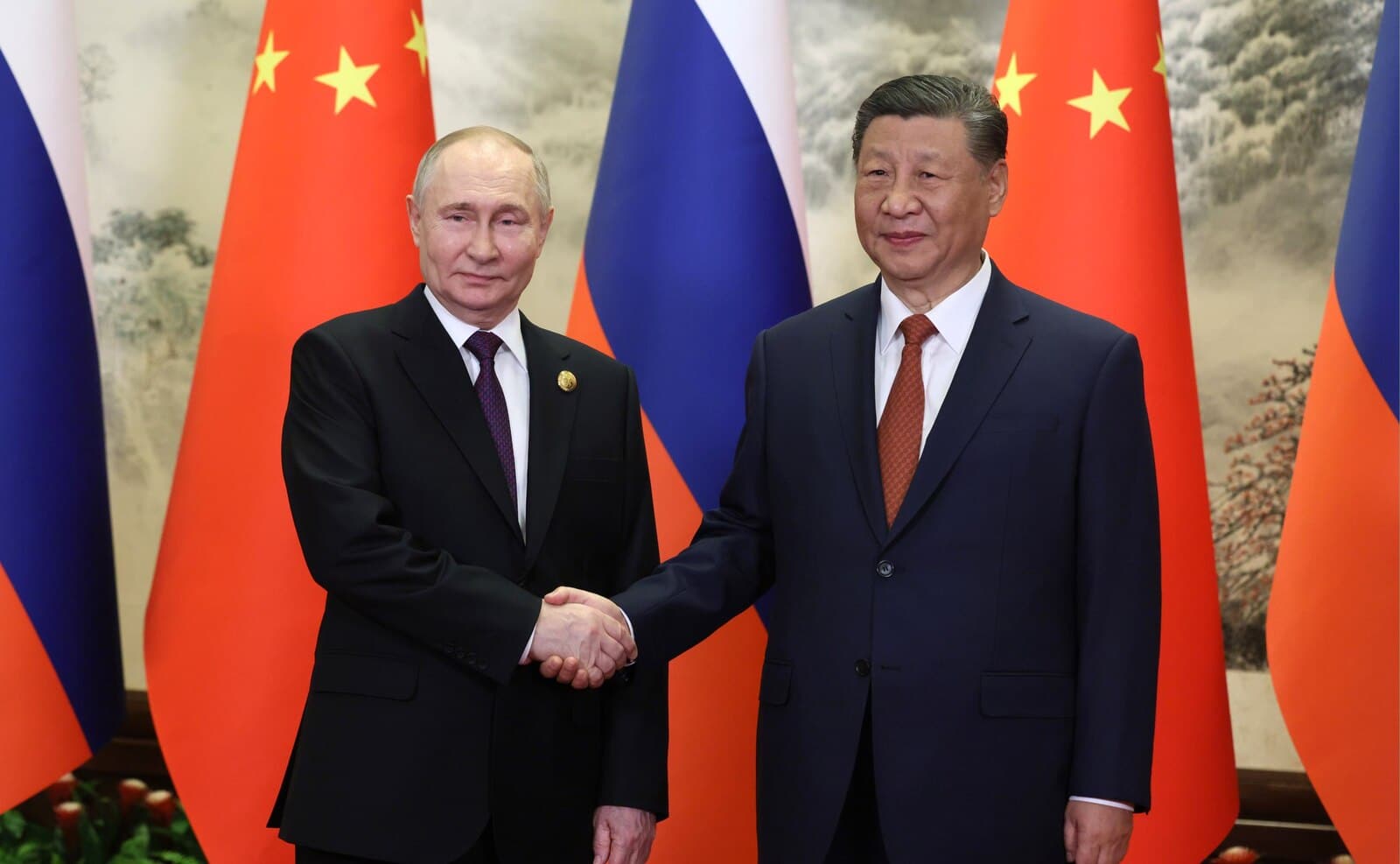China Rewrites History

Last week, President Trump returned from Asia with much talk of deals on trade announced after a meeting between Trump and China’s Xi Jinping. Amid the discussion of these deals, it is well-worth remembering the headlines Xi made the previous month, after China’s blow-out celebration marking the 80th anniversary of World War II. That event was a brazen display of threats, and it was attended by dozens of authoritarians from around the world.
China is attempting to not just rewrite history, but also the rules of today’s international order. Recognizing this fact is crucial to protecting U.S. interests.
September’s massive military parade made headlines around the world due to the aggressive military posturing on display. Of course, in 2025 it is entirely appropriate to commemorate the Allied victory over the Axis Powers. When it comes to the number of war dead as well as the length and destructiveness of the war, China’s situation was unique. The war in the East really began with Japan’s invasion of Chinese Manchuria in 1931 and continued to the very last days of the war in 1945. Historians estimate that China suffered 3-4 million military deaths and 20 million civilian deaths.
But who fought the Japanese, and how should the story be told? The brunt of the fighting against the Japanese in China was led by the pro-Western Chinese Nationalists, led by Chiang Kai-Shek. The governing Nationalists and Mao Zedong’s pro-Soviet Communist militias were locked in their own death struggle, though at times they did temporarily work together. But for much of the 1930s, Mao and his army were located far in the interior of the country while the Nationalists faced the Japanese directly.
Today’s Chinese Communists are rewriting this story, erasing the distinct leadership and sacrifice of the Nationalists and the support of their Western allies, most notably the United States. This is worrying, as a generation of Chinese young people have a warped sense of the historically deep friendship between the American and Chinese peoples and an inaccurate understanding of World War II, the Korean War, the Cold War, the continuing conflict over Taiwan (where the Nationalist leaders fled to exile), and the other dynamics that have led to the world as we know it today.
Thus, on the domestic front, all of this is Chinese President Xi’s effort to reframe recent Chinese communism in a heroic light and justify an aggressive posture on the world stage today.
A second observation from Beijing’s military spectacle can be drawn from the VIP guest list. Most of those attending were skeptics of free markets, human rights, and democratic institutions.
With the cameras rolling, President Xi was flanked by Russia’s Vladimir Putin and North Korea’s Kim Jong Un. The guest list was a rogues gallery of autocrats, communists, and dictators from Azerbaijan, Belarus, Iran, Vietnam, Laos, Myanmar (Burma), and elsewhere. Sadly, much ado was made over meetings with India’s prime minister, Narendra Modi. Although Modi’s party has been democratically elected, the country has been sliding toward increased sectarian violence, religious and ethnic persecution, and lawlessness. Modi’s India has supported Putin’s aggression in Ukraine by illicitly purchasing Russian energy.
Recall, President Trump spent a week at the meetings of “toothless” ASEAN (Association of Southeast Asian Nations). China has created a rival, the Shanghai Cooperation Organization (SCO), and China’s alliances of convenience present an alternate vision for international society, a vision that is led by authoritarian and totalitarian leaders who use modern tools of surveillance, election interference, intimidation, and misinformation to control their own societies.
It used to be that authoritarians largely operated in isolation, and at times, had one another’s backs at the UN. But, as Anne Applebaum has recently written, we are in a new era of these regimes flaunting democratic norms at home and abandoning international norms with the cooperation of other authoritarians. We see this in Chinese and Russian support for Venezuela’s corrupt regime and its bullying of its neighbors. We see this in the provision of military hardware from Iran, North Korea, and elsewhere, and even soldiers from North Korea in support of Russia’s immoral war in Ukraine. The list of bullying, surveillance, espionage, and other nefarious activity goes on and on.
Americans respect the magnificent history and rising standard of living of the Chinese people, but our leaders must be vigilant about what a rewritten history and a revised international order means.
This article was originally published in WORLD.
Photo: President of Russia Vladimir Putin with General Secretary of the Chinese Communist Party Xi Jinping via Kremlin.ru under CC BY 4.0.

